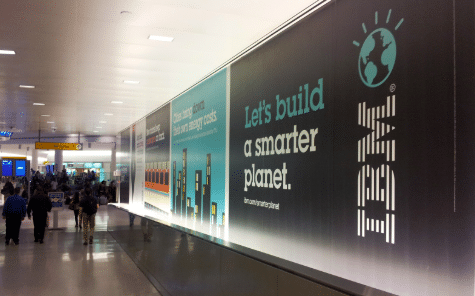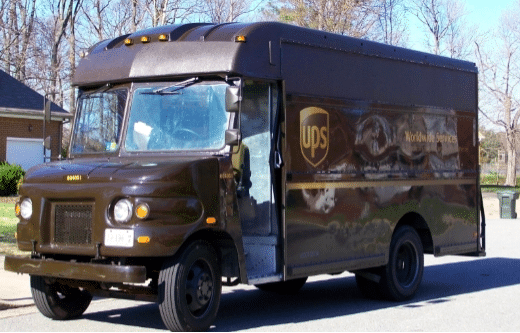Top Supply Chain Blockchain Projects for 2019: Corporate to Scrappy Startups
The general public may still associate the term “blockchain” with Bitcoin, but members of the crypto space know that the technology has far more applications. One field blockchain is on the verge of revolutionizing is supply chain management. Blockchain provides unprecedented levels of transparency in an industry once connected by paperwork and human error.
How can Blockchain Influence Supply Chain Management?
Traditional supply chain operations rely on centralized methods that often result in oversight and mismanagement. Without proper communication, a significant number of things can go wrong. A centralized system means that everything from your package delivery to B2B purchases is subject to delays. Blockchain’s decentralized and distributed nature, however, streamlines the way we exchange products. The technology generates permanent histories, enabling simplified tracking of goods from origin to ultimate destination. Documenting products’ journeys decreases the likelihood of fraud and double spending, and can assist with identifying the origin of any issues. Without the need for intermediaries, blockchain dramatically reduces costs. It also provides relevant parties—such as manufacturers and carriers—with valuable insight into locations, assignments, transactions, and alterations. The technology is not commonplace in supply chain management quite yet, but there are several companies diligently working to bring the technology to the forefront—and some have even made their projects available for others to use. Here are a few of the leaders:IBM Enters Blockchain and Takes Over
IBM is arguably one of blockchain’s most prominent and influential corporate advocates. The company now boasts Watson Supply Chain, an application that enables customers to increase visibility and optimize supply chain data gathering. The platform is intended to help improve B2B collaboration and optimize order fulfillment and management. IBM has also partnered with an organization known as RoadLaunch. This partnership is taking advantage of the corporation’s existing IoT and artificial intelligence platforms to circumnavigate pitfalls in the freight logistics industry. RoadLaunch’s blockchain network automates processes, process ubiquity, reduce freight risk, and minimize transactional collisions.
IBM has also partnered with an organization known as RoadLaunch. This partnership is taking advantage of the corporation’s existing IoT and artificial intelligence platforms to circumnavigate pitfalls in the freight logistics industry. RoadLaunch’s blockchain network automates processes, process ubiquity, reduce freight risk, and minimize transactional collisions.Walmart Embraces Blockchain
Walmart is also leveraging IBM’s blockchain network (co-developed with the Hyperledger Project), but this time to optimize foodstuff traceability for products such as chicken and bananas. There are several components in the food industry supply chain, such as farmers, distributors, brokers, processors, and of course, retailers. Unfortunately, the process’s complexity leaves room for mistakes and deceit. Maintaining digital records available to all parties streamlines product deliveries (which is essential for perishable goods) and reduces waste. Blockchain doesn’t just make transporting food easier—it helps avoid outbreaks. Walmart conducted a successful experiment with IBM to trace Chinese pork to prevent a scenario like the E. Coli outbreak in spinach that killed three people in 2016 from reoccurring.UPS Enters the Blockchain Alliance
At the end of November 2017, United Parcel Service (UPS) became part of the Blockchain in Transport Alliance (BiTA). John Larkin, an analyst from the investment group involved in the project known as Stifel, says: “In our view, blockchain will combine with the truckload pricing futures market, with data analytics-assisted [and] artificial intelligence-assisted real-time matching of loads and empties.” UPS sees blockchain’s potential to deliver packages quickly and cheaply to customers. The company also recognizes that the day-to-day work of data providers, software providers, and trailer-leasing companies could benefit from the technology.
UPS sees blockchain’s potential to deliver packages quickly and cheaply to customers. The company also recognizes that the day-to-day work of data providers, software providers, and trailer-leasing companies could benefit from the technology.Blockchain Projects Doing Supply Chain
The supply chain industry is intertwined with numerous others. Blockchain is not limited to the big players on the field, either. Here are three companies that specialize in blockchain who are aiming to optimize supply chain management across a variety of professional spaces.Waltonchain
Waltonchain is one of only a few blockchain/supply chain projects to incorporate both digital and physical elements into one system. To do this, the company leverages the Internet of Things, but the combination creates what they call the “Value Internet of Things.” VIoT is intended to decentralize the IoT development process. The Waltonchain is technically a “parent” chain. As new business adopt the system, it generates “child chains” to connect industries. The overall network is anchored with a token known as WaltonCoin, which also employs RFID chips to create a new kind of business ecosystem that ensures traceability, security, and authenticity. RFID technology (radio frequency identification) is all about communication. It relies on radio signals to identify specific targets—such as access control systems that libraries use. RFID tags attached to food products is the interface enables their connection to the blockchain, and therefore includes them in the Value Internet of Things.Provenance
Provenance is another project disrupting supply chain management, but it’s doing so with an environmental and ethical emphasis. Current supply chain centralization and disconnection results in products (and their transference) that negatively impact nature and communities through unethically sourced materials and wasted vehicle fuel. Blockchain, however, can provide consumers with insight into where their products originate, allowing them to verify if something is environmentally harmful or genuinely benevolent. The company’s founder, Jessi Baker, initially launched the company as a side project in 2013, but now has approximately 250 clients. She says it is essential that companies and consumers know more about where their products come from: “Opaque supply chains present a huge risk to companies. There could be slavery in their supply chains, there could be huge environmental damage, but just because that information is one or two tiers removed from your core operations doesn’t mean it isn’t absolutely integral to your business.” Supply chains can be convoluted, but Provenance intends to make it easier for “businesses that make and sell products to share information about the people, places, and materials that create those products.”EverLedger
Food, data, and packages are not the only things that could benefit from a more transparent supply chain: diamonds, too, are frequent subjects of deception. EverLedger has created a blockchain application that tracks assets over the course of their lifetimes. They make notes of history, defining characteristics, and ownership to generate an immutable record via blockchain. Due to diamonds’ high value, the company reports that an annual total of $45 billion is lost to insurance fraud, and 65 percent of false claims pass undetected. Diamonds are also commonly trafficked and stolen goods. EverLedger’s blockchain can trace an asset back to its origin to help prove ownership in the case of theft and attest to authenticity.Conclusion
When we can provide irrefutable evidence of origin and denote whenever products change ownership, it’s possible to create a safer and trustworthy economy. From production to transportation to delivery, blockchain technology is poised to alter the future of supply chain management forever—and there are multiple projects eager to do so. The post Top Supply Chain Blockchain Projects for 2019: Corporate to Scrappy Startups appeared first on CoinCentral.Blockchain everledger IBM provenance Supply Chain UPS Walmart waltonchain



